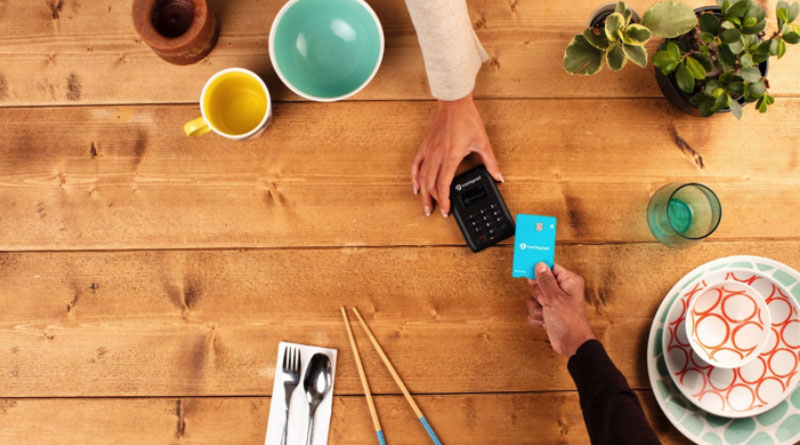15% Of 18-34s Order And Pay At Restaurants By Scanning A QR Code, As Contactless Preferred For Restaurant Bills

New Consumer Spend data from Barclays’ annual contactless trends report has revealed that 2023 was another record-breaking year for ‘touch and pay’, further cementing it as the UK’s most popular payment method, owing to its speed and convenience. Usage grew across all age demographics, and the gap between older and younger audiences continues to narrow, with fastest growth among the over 65s for the third year running. Mobile wallets are also gaining ground, particularly with younger shoppers, while Chip and PIN and cash are the preferences for purchases over £100.
When dining out, restaurant-goers continued to embrace contactless and digital payments in 2023. While overall restaurant spending was down -6.7 per cent due to cost-of-living pressures, contactless spending fell only -2.9 per cent; demonstrating the shift towards speed and convenience at the point of payment. In addition, 15 per cent of those aged 18-34 now say they prefer to order and pay by scanning a QR code using their phone when the option is available, to avoid having to wait for the bill or card machine at the end of a meal.
Across the population as a whole, a record 93.4 per cent of all in-store card transactions up to £100 were made using contactless in 2023, and in total there were 7.8 per cent more ‘touch and go’ transactions than in 2022. On an individual level, the average user made more transactions (up from 220 to 231), on more expensive items (the average purchase cost £15.69 – up 3.8 per cent), meaning that they spent more overall (£3,623 – up 8.9 per cent).
For the second year running, the Friday just before Christmas (22 December 2023) was the single biggest day for contactless – spending was 87.6 per cent higher compared to the daily average, as shoppers picked up last-minute gifts, or enjoyed a few drinks with friends as they clocked off for their festive break.
While contactless is still more popular among younger consumers, the gap between older and younger audiences continues to narrow. In 2023, the percentage of active users among 85–95-year-olds (80.1 per cent) crossed 80 per cent for the first time. More broadly, for the third year in a row, over-65s were the fastest growing segment for contactless usage , up 4.1 per cent year-on-year.
However, there is still a division among contactless users when it comes to preferences for making contactless payments using a mobile wallet versus a physical card. Research from Barclays shows just 3 per cent of over-75s prefer a mobile payment over using a physical card, whereas a quarter (25 per cent) of 18-34-year-olds say they prefer to use their phone. The increasing popularity of mobile payments; which have no contactless upper limit via two-factor authentication; means some younger shoppers now opt to go cardless when leaving home. More than one in five (22 per cent) of those aged 18-34 regularly leave their wallet behind when out shopping in favour of paying with their smartphone, in comparison to just 1 per cent of over 75s.
As a consequence for increased ‘touch and go’ mobile spending, nearly one fifth (18 per cent) of Brits admit they also have trouble remembering their PIN when prompted. Fortunately, many banks, including Barclays, allow customers to check their PIN securely by logging in through their mobile banking app.
Karen Johnson, Head of Retail at Barclays said: “Since we rolled out contactless payments to the UK in 2007, it has firmly cemented itself as the UK’s favourite payment method, thanks to its speed and convenience. Given the growing number of cashless businesses, I’m pleased to see that many older shoppers are embracing touch and go, and that the gap in contactless usage between age demographics continues to narrow.
“In 2024, we expect to see a greater shift to payments using mobile wallets, as more bricks-and-mortar business integrate the technology into their customer experience. Many of our hospitality & leisure clients are finding success by giving customers the ability to order and pay from their table by scanning a QR code. Customers like it because they don’t have to wait for the bill, meaning they can squeeze in an extra round of drinks or a dessert before they need to leave, and the business frees up more capacity for waitstaff, boosting productivity.”
